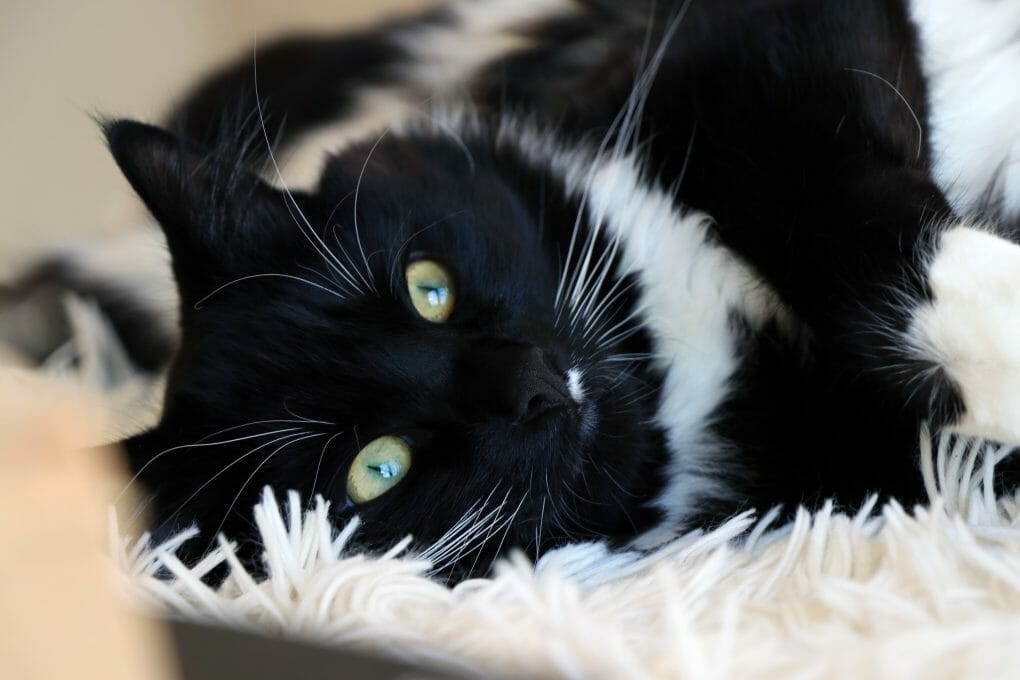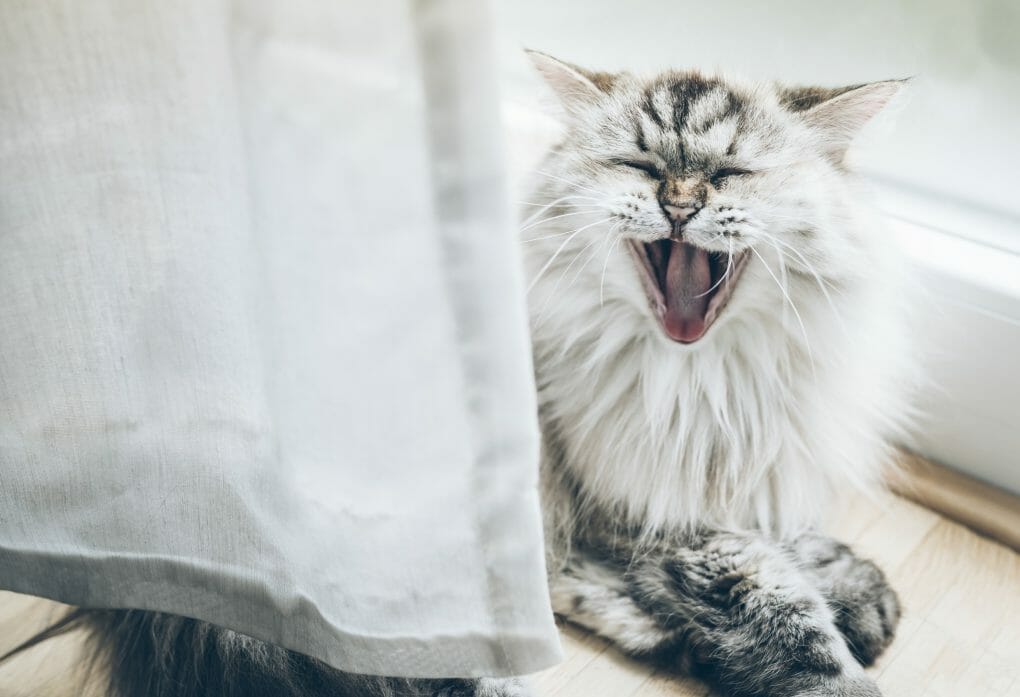Do Ragdoll Cats Bite: Reasons Why Ragdoll Cats Bite and How to Deal With It
Yes, Ragdoll cats are usually very calm and docile, but they can bite when feeling threatened or angry. Humans – not other animals, generally trigger this behavior. If a Ragdoll cat ever bites you, don’t panic! There are treatments available that will help ease the pain. In the meantime, avoid provoking the cat and stay away from them if they’re in this mode.
Table of Contents
Reasons Why Ragdoll Cats Bite
Fear
According to OxfordPets, most Ragdoll cat bites are caused by fear. If you’re experiencing this behavior from your cat, it’s essential to understand why it’s happening and what you can do to calm things down. Bites usually occur when your cat feels scared or threatened – not angry or aggressive.
The bite should eventually stop if you remain calm and relaxed. Trying to force the cat away will only worsen the situation and may even lead to biting further in retaliation.
Constant Changes in Daily Routine
Ragdoll cats are known for their highly affectionate nature, but this doesn’t mean they can’t bite when feeling defensive. This is because Ragdoll cats don’t have a consistent environment and routine, making them feel insecure.


If you notice your cat biting you more often than usual, try changing its daily routine to provide it with a stable and comfortable environment. Don’t worry; most Ragdoll cat bites are just reflexive actions meant to protect the pet or its family from harm.
Redirected Aggression
Redirected aggression is a behavior that happens when a cat playing with another animal or person gets startled. In this case, the cat might become aggressive towards its play partner because it feels scared and helpless at the same time. So if you find that your Ragdoll cat bites you often – regardless of how Playful he may seem at first – it’s best to take him for an examination by a veterinarian to rule out any medical issues that might be causing his biting behavior.
If the biting continues after remedying these causes, professional help is required to correct the behavior and preserve your pet’s health.
Separation Anxiety
Ragdoll cats are usually bonded with one person in particular; this can lead to increased anxiety and even aggression levels. Solutions to prevent this include providing a play area or leaving them with a caregiver during periods of separation. If you find your cat has bitten someone, seek veterinary help as soon as possible!
Express Affection
Ragdoll cats are affectionate and bite as a way to show love. Sometimes the biting is accidental, but most of it is intentional. If you are uncomfortable with your cat biting you, it is best to train them not to do so.
The key to preventing bites from happening is communication – be open and honest with your cat about how you feel about their biting behavior. By doing this, you can work on resolving any issues that might arise around this behavior.
Medical Issues
Ragdoll cats are known for their affectionate nature and gentle disposition, but this doesn’t mean they can’t bite when something is wrong. Ragdoll cats’ often biting behavior is an instinct triggered by various medical issues.
If you notice your cat biting excessively or intermittently, it’s best to have a vet check them out first. If the biting persists or becomes severe, underlying health issues may need to be corrected before the cat can safely live without hurting someone – mainly if those injuries result from biting.
Excitement
If a Ragdoll cat ever bites you, don’t panic. It’s just harmless fun! Ragdoll cats are naturally curious, and their bites are usually an accident. When these cats are excited, they often nip at humans to get their attention. If this happens to you, remember not to grab the cat too tightly or pull its tail – both of which will make it bite harder!
Predator or Hunting Instincts


If you see your Ragdoll biting people indiscriminately, it might be doing so out of instinctual hunting behavior. To help curtail this behavior, provide the cat with enough physical and mental stimulation to keep it entertained. Providing toys and playtime will satisfy its prey-seeking instincts while keeping it from unnecessarily biting other family members or strangers.
Teething
As Ragdoll cats undergo teething, they may bite more than other cat breeds. This is because their incisors (molars) grow and become irritated. If you’re worried about your cat biting you, keeping them away from sharp objects while they are teething is best. You can also give them chew toys or treats to distract them from biting you in the meantime.
Changes in Owner’s Behavior
Bites can happen when Ragdoll cats react to new owners who are aggressive toward them or act negatively. This usually occurs when the cat feels scared or cornered – behaving aggressively is its natural defense mechanism.
If you think your cat may have bitten too hard in the past, it’s best to get it checked out by a vet, as there could be any number of reasons behind this behavior. In addition, proper training will help dissuade your cat from biting altogether!
Defending Themselves
Ragdoll cats are naturally semi-aggressive and will bite if they feel threatened. This biting behavior is usually used to subdue prey before it is eaten. If you are petting your Ragdoll cat and it bites you, don’t be alarmed; it is just trying to defend itself.
Showing Dominance
Ragdoll cats are known for their playful nature but can bite in a show of dominance. This biting behavior is usually benign and does not require any medical attention. If you ever worry about your cat’s behavior, contact a veterinarian for advice.
Tips to Stop Ragdoll Cat From Biting
Provide Lots of Chewing or Teething Toys
People often think that cats only like to play by biting things or scratching posts. However, this is only sometimes the case; they are raging Ragdoll cats who love to chew on anything, including furniture and other items around the house!
So, provide plenty of toys for them to gnaw on (including safe ones!). Additionally, ensure there are places inside and outside the home where they can play. This will keep them entertained and content!
Maintain Consistency
It is essential to maintain consistency when training a Ragdoll cat. This breed can be unpredictable and may bite out of nowhere, making it challenging to teach them effectively. To ensure the cat responds positively to your commands, you must keep the feeding, playing, and grooming schedules consistent throughout life.
In addition, Ragdoll cats require regular discipline – that is, spanking or disciplining inhumanely – to learn proper behavior. Ensure you fully understand the breed before getting one to avoid disappointment later on.
Teach Them Early
If you want to prevent your Ragdoll from biting, the best way to do it is by teaching them early. By doing this, you will ensure that they develop good bite inhibition skills and don’t resort to biting as a form of aggression or defense.
You can use positive reinforcement – rewarding good behavior – to achieve this goal. Make sure you have a safe place for them to play and that they get plenty of exercises every day. This will help keep them healthy and happy!
Distract Your Cat to Stop Biting
One of the best ways to stop Ragdoll from biting is to distract him. There are a few things you can do to keep your cat entertained and safe at the same time. Some prevalent distractions include playing with his toys, giving him a treat, or praising him.
If distracting your cat doesn’t work, you must provide a safe place for him to play without being bitten. Always watch your cat and be ready to take action if he bites someone else.
Never Punish Your Cat


Punishing your cat will only make them want to bite more. Instead, try training your cat using positive reinforcement – food rewards, etcetera. If bites occur, immediately apply pressure to the throat and summon a vet if needed.
Raging cats are also susceptible to specific genetic conditions which can increase their bite tendency, so it is essential to be aware of this when breeding or buying one for emotional reasons alone.
Fix Medical Issues
If your cat is biting, you must address some underlying medical issues. Some of the things you can check for include food allergies, medications, or behavioral problems. If all else fails, it’s best to take your cat to the vet for a complete health check-up.
